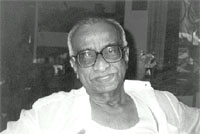Dealing with the suicide malady
 To understand why Kerala reports almost two out of three cases of suicide in India - and what a difference decentralisation of power can make to the situation - go to Bhranthan Moola and Thoongithara. The names of the two settlements in Mallapuram district's Ponnani block literally mean "mad people's colony" and "the hanging place", respectively. With a population of 600, the settlements report an average 14-15 suicides every year. Physicians point out that dementia is common here.
To understand why Kerala reports almost two out of three cases of suicide in India - and what a difference decentralisation of power can make to the situation - go to Bhranthan Moola and Thoongithara. The names of the two settlements in Mallapuram district's Ponnani block literally mean "mad people's colony" and "the hanging place", respectively. With a population of 600, the settlements report an average 14-15 suicides every year. Physicians point out that dementia is common here.
Kerala faces a unique set of social problems. It is the native place of the largest section of non-resident Indians (NRIs). Psychiatrists peg the deteriorating mental health to a growing purchasing power - fuelled by the remittances from NRIs in Gulf countries that account for 25 per cent of Kerala's total income - and a complex metamorphosis of the traditional social system."The land reforms of the 1950s unleashed a social system where people dreamed for more in life and asked for more freedom," says Therayil. By 1970s-80s the dream had turned sour: unemployment was rampant and young educated men were expatriating to the Gulf countries, leaving behind the elders and the women members to fend for themselves in the midst of a social structure that was breaking down. Small wonder that the elderly formed the majority of the cases of dementia.
With the devolution of power to local bodies, the block panchayat initiated the Comprehensive Community Mental Health Project. "Decentralisation provided us the scope for addressing the social causes of mental diseases," says Manoj Kumar Therayil, a psychiatrist and consultant to the project. "Only the community as a whole could help in this situation," says E T Unni, president of the block panchayat. So the project started with programmes to raise awareness; 600 volunteers were trained for collecting data on mental health problems.
A manual was brought out for prospective mothers on how to manage their family life with tips on physical and mental health. Workshops were organised for teachers, who were trained to identify mental disorders among the children. A survey covered 10,000 primary school children of 52 schools. Now, child guidance cells operate in each school. The success of the project has made it a model and 100 panchayats in other districts have got their members trained at Ponnani, while 15 have adopted the model.
